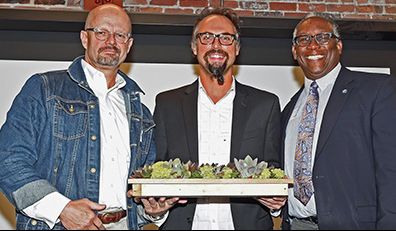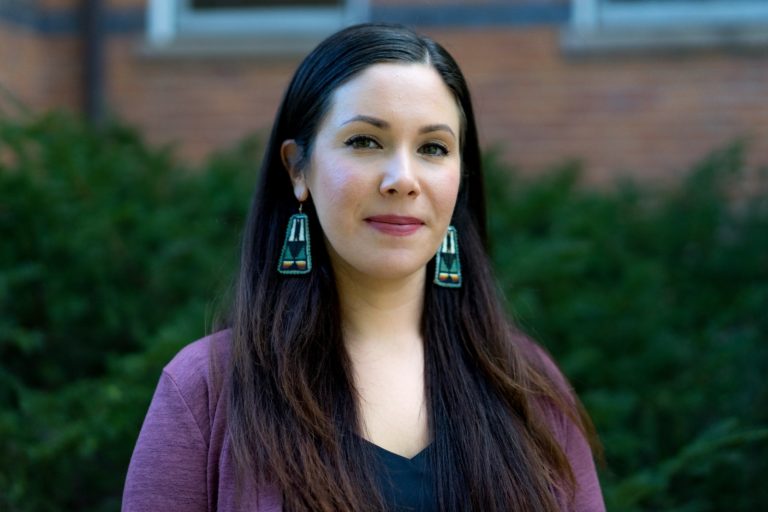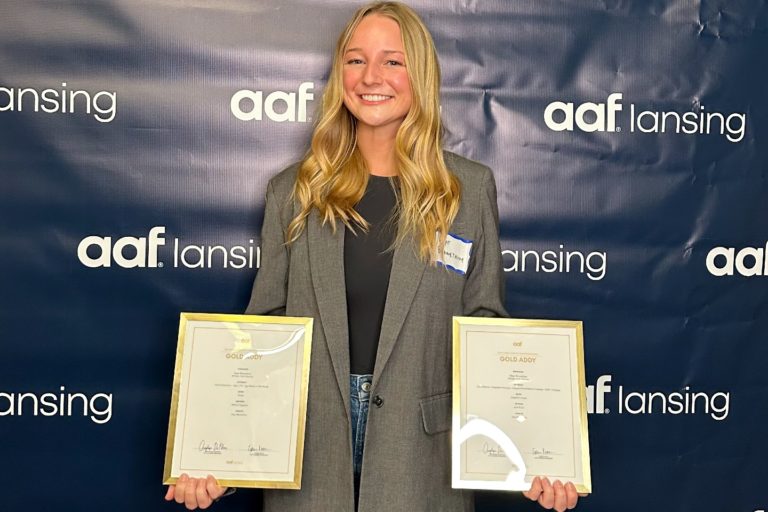
Kyle Powys Whyte, the Timnick Chair in the Humanities in the Department of Philosophy at MSU’s College of Arts & Letters, was awarded the 2015 Bunyan Bryant award for academic excellence. Dr. Whyte received the award in Detroit, MI as part of the Detroiters Working for Environmental Justice (DWEJ) 20th anniversary celebration at the Adventure Center on the Detroit riverfront.
“There was much passion in the room as DWEJ convened an incredible group of justice advocates to honor the organization’s 20th anniversary,” says Dr. Whyte. “It was energizing to hear about how DWEJ’s future plans involve continuing to expand its capacity to ensure that all people live in clean and healthy environments. DWEJ has been a dedicated partner in the formation of the Michigan Environmental Justice Coalition. Though no one else but a few close friends know this, I actually looked to Bunyan Bryant early on as a scholar working in the Great Lakes region who set a model of scholarship, engagement and organizing that I have tried to emulate in my own career. Professor Bryant provides a powerful example to so many scholars who are starting out, including many in my generation and beyond.”
Professor Bryant provides a powerful example to so many scholars who are starting out, including many in my generation and beyond.
The award ceremony highlighted Dr. Whyte’s collaborative work with individuals and organizations across Michigan as they work to address the impacts of global warming on the continued existence of cultures, societies, and ways of life. The DWEJ program states “An articulate leader, Dr. Whyte advocates with passionate vision and philosophical precision in an often challenging dialogue.”
About the Bunyan Bryant Award

Bunyan Bryant’s long-term commitment to opening eyes and the gateways to change have altered the environmental justice landscape—both educationally and functionally, key attributes of the Bunyan Bryant Award for Academic Excellence.
A gifted visionary, he organized the First People of Color Environmental Summit, helping write its Principles of Environmental Justice—the bedrock of DWEJ from its first days.
A Flint native, with a BS in Social Science from Eastern Michigan University and an MSW in Social Work and PhD in Education from the University of Michigan, his early and ongoing academic research on environmental justice issues has brought empirical evidence to the table. In addition to his work at the University of Michigan School of Natural Resources and Environment, including as the Director of its Environmental Justice Initiative, he has served on boards, written books, conducted studies, and organized conferences—all the while exploring the impact of environmental hazards on people of color and low-income groups. Bunyan Bryant has been fearless in bringing a rigorous voice to the conversation of our future. For further information, please visit www.dwej.org.
About Dr. Kyle Whyte
Kyle Powys Whyte, the Timnick Chair in the Humanities in the Department of Philosophy at Michigan State University, successfully bridges the academic world and the life of the community through the lens of climate justice and environmental justice. An enrolled member of the Citizen Potawatomi Nation, originally occupying the Great Lakes region, his primary research addresses moral and political issues concerning climate policy and Indigenous peoples and the ethics of cooperative relationships between Indigenous peoples and climate science organizations. He has published in a wide range of humanities and science journals, from Hypatia to Climatic Change. His work has been supported by funders such as the National Science Foundation, U.S. Fish and Wildlife Service, Northeast Climate Science Center, Great Lakes Integrated Sciences and Assessments Center, and Sustainable Michigan Endowed Program. Regarding climate change and Indigenous peoples, he is involved in the work of the Sustainable Development Institute of the College of Menominee Nation, the Climate and Traditional Knowledges Workgroup, the U.S. Department of Interior’s Advisory Committee on Climate Change and Natural Resource Science and numerous federal climate science programs.
Photographs courtesy of Grace Doss – Flickr


